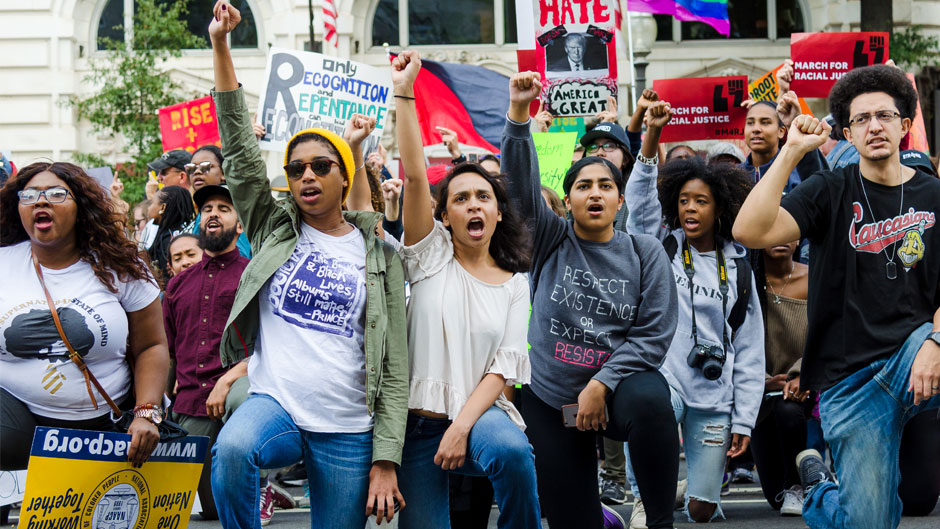During this time of intense attention to social change, University of Miami Libraries is working to educate the community in the fight for racial justice. As protests continue across the United States in response to the killing of George Floyd, a team of librarians have curated a resource guide to help people get information.
“It’s designed to assist our community in educating themselves in figuring out ways to advocate for improved conditions, especially along the lines of race and ethnicity,” said Roxane Pickens, director of the Learning Commons and Africana Studies librarian.
The community now has quick access to a vast amount of materials available through the University of Miami Libraries including books, e-books, and films, as well as publicly available resources, such as websites, archives, curricula, reading lists, and more.
“We are living in a unique moment when people are open to learning about the nature and origins of the racial injustice that plagues our society. This creates a tremendous opportunity for change. Learning tools such as this guide are critical resources to those seeking understanding and solutions,” said Charles Eckman, dean of libraries and university librarian.
Pickens pointed out that the University of Miami Libraries is in a unique position to facilitate both knowledge and actions around the topic of racial justice and equity.
“With a mission and vision that promotes transformational learning, this resource guide is one step in a journey that will help our community actively co-create a better world,” she explained.
Pickens is one of the many people who worked hard to create the Racial Justice Resource Guide. The collaborative effort was created by Lauren Fralinger, Learning and Research Services, and Kate Villa, Peer Research and philosophy doctoral student, with the assistance from subject specialty librarians and members of the Libraries’ Diversity, Equity, and Inclusion Interest Group. Pickens said the resource guide offers something for everyone.
“The materials we offer are wide ranging. People can find a robust collection of fiction that pertains to experiences of Black or indigenous people,” said Pickens. “They can also find a large collection of non-fiction items that give readers a sense of history and culture.”
There is even a resource tab for children, she noted. “It’s especially a useful tool that can assist parents who are looking for suggestions on how to talk to their children about important issues going on in our community,” Pickens added.
The librarian wants people to understand that the path to racial justice in the United States and across the world has been a complex journey, and Pickens hopes people have the opportunity to immerse themselves in the topic.
“People need to take the time to do this because it’s all around us. The effects of racial injustice are immense, and I think we have an obligation to each other to remedy these problems. One of the first steps of that remedy is educating ourselves,” said Pickens. “I believe we really owe it to our society to do this work together.”
For those interested in learning more, but are not sure where to begin, the following is a list of Pickens’ recommendations from the Racial Justice Resource Guide.
- Ijeoma Oluo’s “So You Want to Talk about Race” gives us ways to engage in necessary dialogues about radicalized identity in the United States, and it is the 2021 selection for the One Book, One U common reading program, a multi-campus collaboration that is now housed at UM Libraries through the Learning Commons.
- Ava Duvernay’s Selma presents an historicized drama of civil rights marches led by Dr. Martin Luther King, Jr. and others, which prompted the Voting Rights Act of 1965.
- Kate Carpenter, et al.’s #Resist Syllabus: Cultural Histories of Resistance in the U.S. offers a rich and diverse set of texts that explain today’s antiracist and decolonization resistance movements.
- Christine Herbes-Sommers’ Race—The Power of an Illusion explains the “origins, beliefs, and consequences” of the construction of race and radicalized identity.

